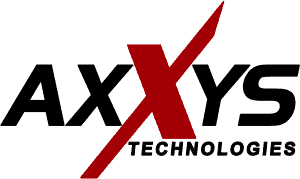Small businesses have begun to harness the power of cloud computing, an essential trend in the modern digital landscape. With the adoption of cloud technology, companies operate more efficiently as it provides access to advanced tools without the need for hefty initial investments in hardware or software.
Cloud services provide a range of offerings. Some businesses employ Software as a Service (SaaS), enabling them to use applications on demand, free from the task of installation on personal computers. Equally popular is Infrastructure as a Service (IaaS), providing the capabilities of an entire IT department, without the associated costs and maintenance hassles. Many businesses also utilize the cloud for data backup and storage, ensuring their critical files are secure but conveniently accessible from any location.
Each business finds a unique way to use the cloud, tailor-fitting it to their requirements. Regardless of the specific use, businesses note significant improvements in efficiency, flexibility, and overall revenue. In this post, we aim to shed light on the various ways small businesses are capitalizing on cloud technology and its transformative potential.
Utilizing Software as a Service (SaaS)
Cloud computing has become the go-to solution for many small businesses, with Software as a Service (SaaS) at its forefront. SaaS operates like a software rental service, giving businesses access to a wide array of applications, from email services to customer relationship management (CRM) tools, without the need for local installation or maintenance. You can use these applications anytime, anywhere including on many mobile devices.
Several SaaS applications have become essential in small business operations. Bookkeeping software simplifies financial management, CRM systems enhance customer interactions, and time-tracking apps optimize employee productivity. SaaS is transforming small business operations, making efficiencies once reserved for larger organizations accessible to all.
However, while SaaS can be a cost-effective, scalable solution, it’s not without its drawbacks. Data privacy concerns and the need for a stable internet connection for access are key considerations. Therefore, when considering SaaS, balance the benefits and drawbacks carefully, and choose providers who prioritize data security and reliable uptime.
Cloud-Based Data Backup and Storage
Backing up and storing data in the cloud has transformed the way small businesses operate. It’s not just about keeping data safe from physical threats, but also ensuring rapid recovery in case of data loss due to hardware failure, cyberattacks, or human error.
Cloud storage solutions offer a range of options to meet diverse needs. Dropbox and Google Drive, for example, are known for their user-friendly interfaces and seamless integration with other tools. Alternatively, for businesses that need advanced security and storage features, solutions can be found in Microsoft Azure and Amazon Web Services.
However, using cloud storage requires adherence to best practices for data security and access. Regular backups prevent critical information loss, while encryption adds an extra layer of security to sensitive data. A two-step verification process can further deter unauthorized access.
Cloud storage requires ongoing attention and maintenance to avoid potential problems. Regular audits can uncover vulnerabilities, and training staff on safe practices can mitigate the risk of data breaches.
Embracing cloud storage is a step towards modernizing a small business. It provides a secure, accessible platform for data, promoting business continuity in unpredictable situations. With the assurance of cloud storage and backup, small businesses can concentrate on serving their customers and expanding their operations.
Understanding Infrastructure as a Service (IaaS)
Infrastructure as a Service (IaaS) is a concept in the IT realm where you rent servers, virtual machines, storage, and networks from a cloud provider or IT service provider like Axxys Technologies. The provider manages the hardware, leaving you to oversee the software and applications.
IaaS can be compared to a virtual office space for your operations. Instead of owning and maintaining the building, you rent it, freeing you to concentrate on your core tasks.
Consider the example of web hosting. Previously, owning a server, setting it up, managing it, and dealing with associated technical issues was the norm. But IaaS changes this. It allows you to rent the server space you need from a provider who handles all the technical aspects, enabling you to focus on building an outstanding website.
But the benefits of IaaS expand beyond web hosting. It can also be used to establish a virtual data center, allowing you to adjust your resources based on demand. This is far more efficient than purchasing and maintaining your own hardware.
The advantages of IaaS for small enterprises are evident. It offers flexibility, allowing you to adjust resources as your needs grow. It’s also cost-efficient, since you only pay for what you use, and reliable, as the provider takes care of maintenance and upgrades. In essence, IaaS provides access to high-quality IT infrastructure usually associated with larger firms, but without the hefty price tag.
However, like all technologies, IaaS presents its own challenges. It requires careful consideration of security and data privacy, as well as a contingency plan in case the provider experiences downtime. But with thoughtful planning, IaaS can be a valuable tool for small enterprises.
Boosting Growth with Cloud Services Integration
Business growth depends on synergy, especially in the realm of cloud services. Integrating SaaS, IaaS, and cloud storage can enhance efficiency for small businesses. For example, a Customer Relationship Management application (a SaaS) can interact seamlessly with cloud-based data storage (IaaS), ensuring customer records are consistently updated and accessible.
Examples of Successful Integration
There are plenty of successful examples of small businesses using cloud services integration to fuel growth. Consider an online retailer that uses SaaS for inventory management, IaaS for website hosting, and cloud storage for data backup. This cloud-based system allows them to scale up during busy seasons by adding resources, and scale down during slower periods.
Similarly, a consulting firm that uses SaaS for project management, IaaS for virtual desktops, and cloud storage for client files can efficiently collaborate with remote teams and clients. These instances demonstrate how the integration of different cloud services can streamline operations and foster growth.
Conclusion
As we anticipate the future, cloud computing becomes increasingly crucial in shaping small businesses. This technology can streamline operations and stimulate growth, making it a necessary tool rather than a mere option. It’s time to look into suitable cloud solutions for your needs and prepare for a future fueled by technological innovation. Contact Axxys Technologies today to learn more about bringing the cloud to your business.








